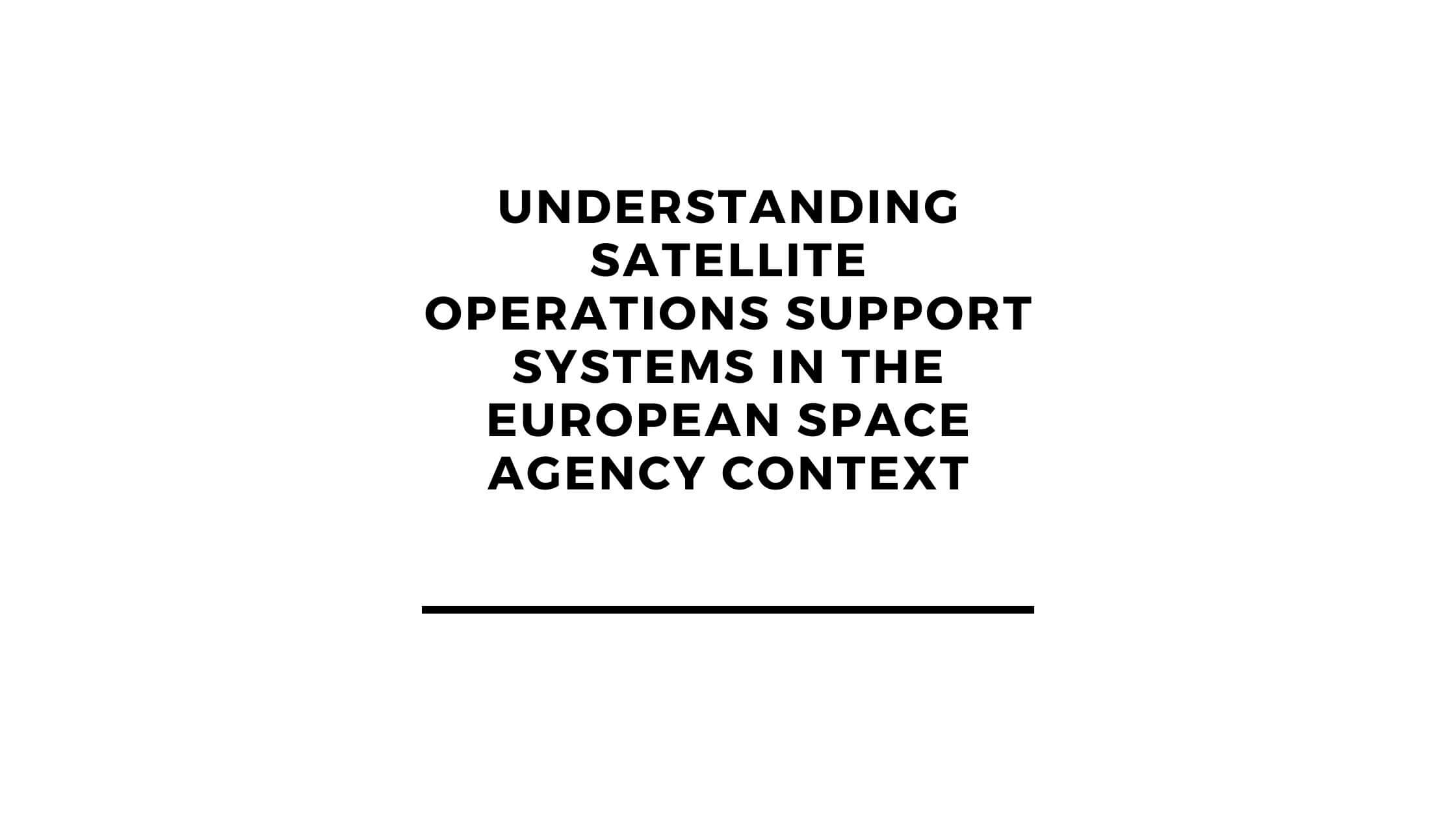Understanding Satellite Operations Support Systems in the European Space Agency Context
Satellite operations support systems play a crucial role in ensuring the smooth and efficient management of satellite missions. As part of the broader space infrastructure, these systems enable the control, monitoring, and management of various satellites orbiting the Earth. The European Space Agency (ESA), renowned for its advancements in space research and technology, heavily relies on such systems to manage satellite operations effectively.
- The role of satellite operations support systems
- Key components and technologies
- Development and implementation
- Challenges in satellite operations support
- Future trends and innovations
Our team works closely with diverse clients to develop solutions that meet the evolving needs of the satellite industry.
Contents
The role of satellite operations support systems
Satellite operations support systems form the backbone of satellite mission success by providing real-time data connections, performance monitoring, and operational support. These systems are dedicated to managing complex tasks such as installation, security, and maintenance of satellite infrastructure in a challenging environment like space. They allow operators to maintain control over satellite mobility, ensuring that satellites remain in the correct orbit and function properly.
In the context of earth observation satellites, support systems handle vast amounts of data to enable accurate imaging and environmental monitoring. This is crucial for climate research, disaster management, and many other applications. Moreover, satellite operations support systems help manage both terrestrial and space-based network resources, integrating them to enhance overall service quality.
Key components and technologies
A comprehensive satellite operations support system involves several key components: command and control interfaces, telemetry processing, satellite network management, and security modules. These systems are often vendor-agnostic, meaning they can operate across different hardware and software platforms, which increases flexibility and reduces dependency on specific suppliers.
The emergence of leo satellite connectivity services and 5g direct-to-cell satellite technology demands advanced solutions for network integration and quality management. The ability to seamlessly manage satellite connections alongside terrestrial networks, known as terrestrial and non-terrestrial network integration, is becoming increasingly important for modern communications infrastructure.
Development and implementation
Developing satellite operations support systems requires deep expertise in space technology, software development, and system integration. The development process involves close collaboration with clients from both the commercial and military sectors. These systems must be robust, secure, and capable of operating in harsh space conditions.
In countries like Poland, the satellite industry is growing rapidly, with increased investments in space research and technology. Local teams focus on creating ready and adaptable solutions that align with global standards and meet the demands of international space missions.
Training is a vital part of implementing these systems. Our team emphasizes continuous education and skill development to ensure operators are proficient in managing satellite operations efficiently.
Challenges in satellite operations support
Working in satellite operations is inherently challenging due to the complex nature of space environments and the critical importance of uninterrupted service. Factors such as space debris, signal interference, and latency require sophisticated management approaches. Support systems must provide timely diagnostics and rapid response capabilities to mitigate risks.
Additionally, the management of satellite performance involves ongoing monitoring and adjustments to optimize the lifespan and functionality of each satellite. Security is another major concern, especially for military and governmental clients, necessitating stringent protocols to protect satellite assets from cyber threats.
Future trends and innovations
The future of satellite operations support systems is closely tied to advancements in AI, machine learning, and automation. These technologies promise to enhance predictive maintenance, optimize resource allocation, and improve overall system responsiveness.
Integration of multi-currency billing and customer management solutions is becoming more relevant as satellite services expand globally. Features like satellite customer relationship management and multi-currency satellite billing systems are critical for commercial operators managing diverse client bases.
As the satellite business grows, so does the need for more sophisticated network management solutions that ensure high-quality service delivery and seamless connectivity across various platforms.
Satellite operations support systems are an indispensable element of modern space missions, enabling effective management of satellites across multiple orbits and purposes. Being based on cutting-edge technology and supported by expert teams, these systems ensure the reliable operation of satellites for earth observation, communication, military applications, and more. The continuous development and implementation of flexible, secure, and vendor-neutral solutions will remain a priority in the evolving satellite industry.







